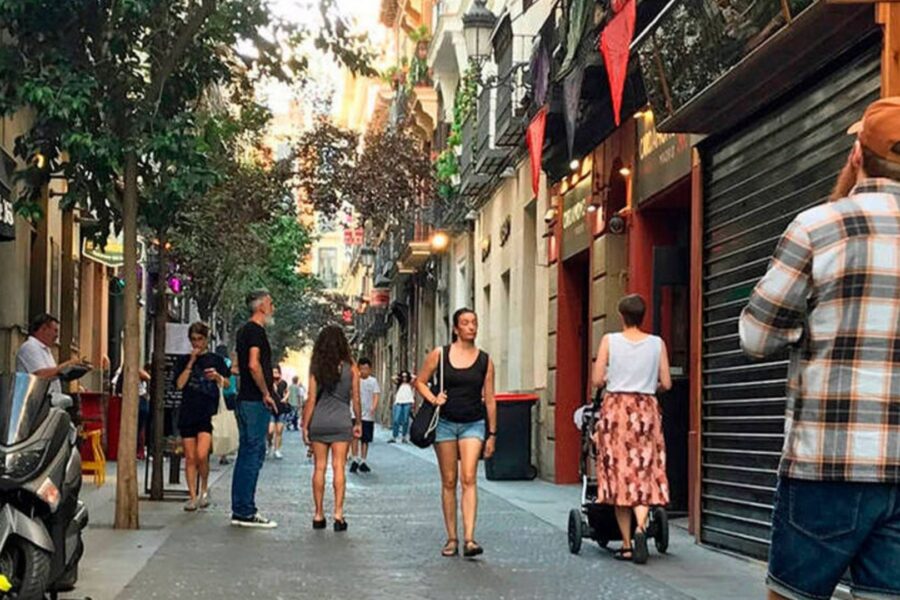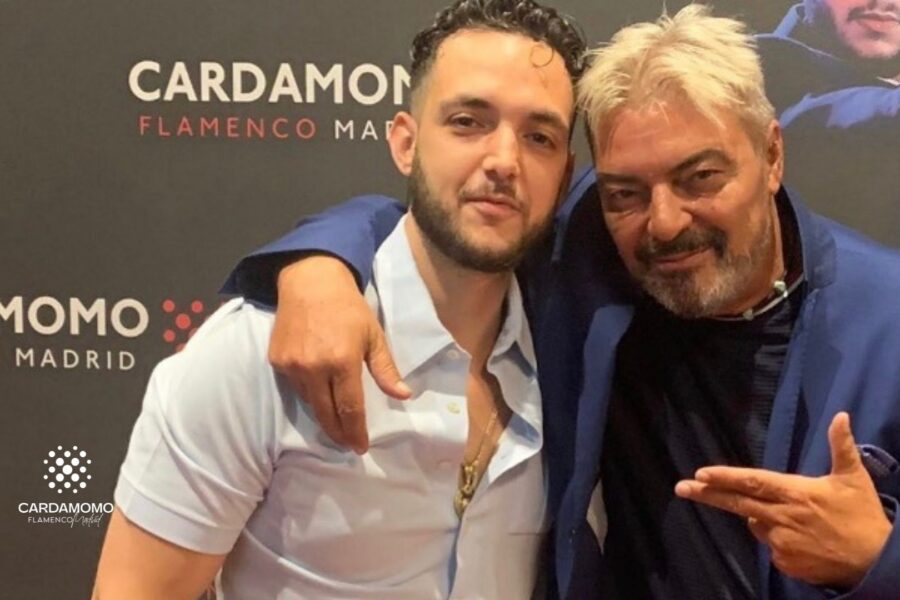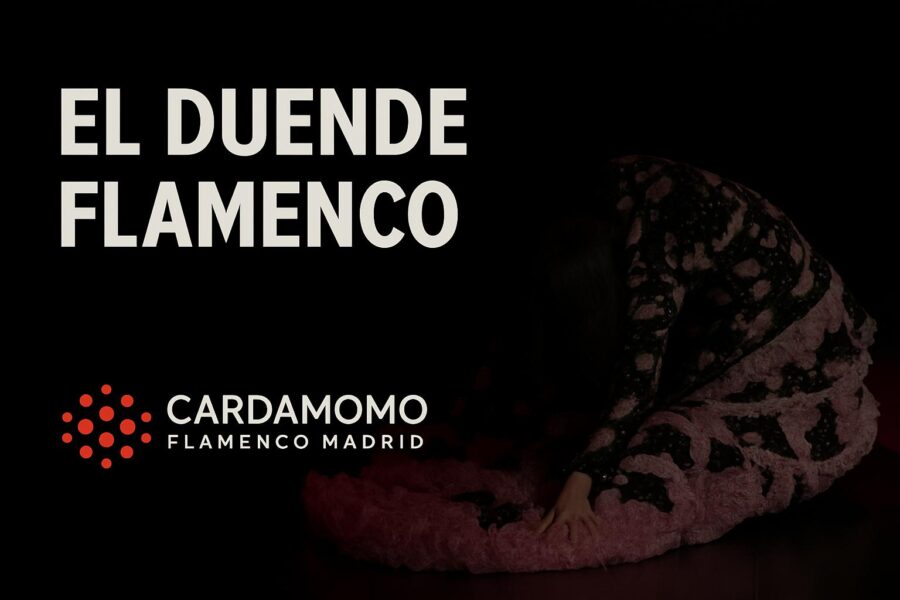

Experience the energy of flamenco like never before, so close that you will be part of the show.
PURE FLAMENCO. The most exclusive flamenco show in Madrid

4 daily shows with weekly programming

Since 1994. Meeting place for the greats of flamenco

The most exclusive tablao. Smaller capacity and closer proximity to the artist

With a weekly programme that presents the best artists on the world flamenco scene. More than 8 artists on stage display the purest flamenco

Cardamomo offers 4 daily passes with different shows and artists every week

Located in Madrid’s historic center, just steps from Puerta del Sol, the exclusive Canalejas mall and the famous Plaza de Santa Ana.

Everyone is welcome at Cardamomo. Find out about children’s tickets, more accessible seats or tickets for residents.

You can live the experience like a true Madrilenian and complete the flamenco experience with a selection of tapas.
Taste a selection of typical and quality tapas, while enjoying more pure flamenco.



“Our first flamencoshow, and we were really blown away! Very intense and fascinating. We highly recommend it. A small, intimate place with very friendly staff. We only had drinks, but the food looked really nice.”
— Bobr12, TripAdvisor
Madrid has its fair share of tablaos (flamenco venues). Cardamomo is one not to miss. What is a visit to Madrid without some traditional entertainment? You are assured of this at Cardamomo.
— luxos.com
“Me and four of my friends went here to enjoy our first taste of Flamenco. Flamenco, if you don’t know, started as an expression to poetry. There is soulful signing, clapping, snapping and when the dancers begin their performance the emotion and power is intense. We went to the 8 pm performance and all really enjoyed it. I would recommend.”
— Arlington, TripAdvisor
Live music is thriving in Madrid, from classical and opera to blues, rock and jazz, but the speciality is flamenco. It may seem odd that the music of the south is so important up here, but there are two reasons for that: first, a lot of Andalusians have made their homes here, and second, any flamenco artist worth his salt wants to play the big tablaos — dinner shows — in el capital. Cardamomo is the real deal, catering to a crowd that knows its bulerias from its soleas. There are three sessions a night, at 6pm, 8pm and 10pm, and, obviously, you’ll go to the latter.
— The Times
“He vivido una experiencia maravillosa, los cantaores, los guitarristas, los bailarines te permiten vivir un sueño con su espectáculo. La atención insuperable y la cena deliciosa!! Les invito a visitar este sitio, realmente espectacular. Gracias por permitir lograr un sueño.”
— Rosisa41, TripAdvisor
Esta cookie se utiliza para almacenar el consentimiento del usuario y las opciones de privacidad para su interacción con el sitio. Registra datos sobre el consentimiento del visitante en relación con diversas políticas y configuraciones de privacidad, garantizando que sus preferencias se respeten en futuras sesiones.
This cookie is used to ensure the secure submission of forms on the website, enhancing security and user experience by preventing CSRF (Cross-Site Request Forgery) attacks.
Esta cookie se utiliza para recordar la preferencia de idioma elegida por el usuario para proporcionar una experiencia personalizada mostrando el sitio web en el idioma seleccionado en futuras visitas.
Este nombre de cookie está asociado a Google Universal Analytics, que es una actualización significativa del servicio de análisis más utilizado de Google. Esta cookie se utiliza para distinguir usuarios únicos mediante la asignación de un número generado aleatoriamente como identificador de cliente. Se incluye en cada solicitud de página de un sitio y se utiliza para calcular los datos de visitantes, sesiones y campañas para los informes analíticos de los sitios.
Esta cookie es utilizada por Google Analytics para mantener el estado de la sesión.
Esta cookie se utiliza para rastrear e informar sobre las interacciones del usuario en el sitio web, como las páginas visitadas o la forma en que el usuario navega por el sitio. Esta información se utiliza para mejorar la experiencia del usuario y optimizar el rendimiento del sitio web.
Youtube instala esta cookie para hacer un seguimiento de las preferencias del usuario en relación con los vídeos de Youtube incrustados en sitios web; también puede determinar si el visitante del sitio web está utilizando la versión nueva o antigua de la interfaz de Youtube.
Esta cookie la instala YouTube para hacer un seguimiento de las visualizaciones de los vídeos incrustados.
Utilizado por Google AdSense para experimentar con la eficacia de los anuncios en los sitios web que utilizan sus servicios.

